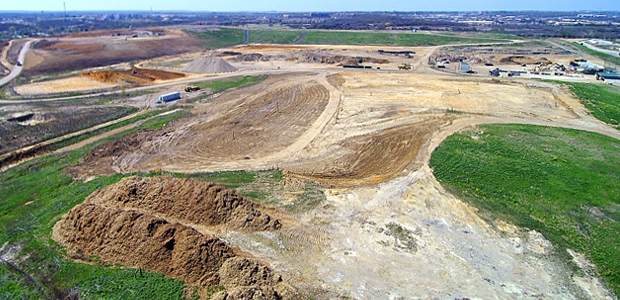
TCEQ Touts Landfill Mining Projects' Potential
There are 200 to 300 closed landfills in Texas, so the potential for resource recovery and regaining land is huge, TCEQ reports.
The Texas Commission on Environmental Quality (TCEQ) is touting the potential of landfill mining -- digging for valuable materials that were discarded in a landfill before the advent of household recycling programs. It could be the future of waste management, according to the agency, which is cooperating on a project in Denton with the city of Denton and the University of Texas at Arlington. "If the techniques being tested in Denton pan out as researchers at UT Arlington believe they will, the end result could considerably expand the lifecycle of landfills, recover valuable materials that have been wasted, produce more energy, and potentially create new uses for closed landfills," according to TCEQ.
Researchers dug boreholes in 2014 and 2015 to determine the composition of a closed landfill area as part of a feasibility study of the mining project.
"The potential is exciting, but it is still too early to fathom the full implications," said Matthew Udenenwu, a team leader in TCEQ's Municipal Solid Waste Permits Section.
There are 200 to 300 closed landfills in Texas, so the potential for resource recovery and regaining land is huge, TCEQ reports. "The process, if successful, would enable the use and reuse of a parcel of land over and over, making landfill land a renewable resource," Udenenwu said. "The challenge for older landfill sites is that despite your best efforts to predetermine and classify the buried waste, you may still be surprised by unanticipated findings as you proceed with the activity. You don't know what you don't know."
So far, Texas has two permitted landfill mining operations, one in Houston and the other in Denton.
Vance Kemler, general manager of Denton's Solid Waste and Recycling Department, estimates that site, which accepted waste from 1985 through 2000, will gain about 60 percent more space once recyclables and usable dirt are removed. The remaining 40 percent of material will be returned to active sections of the Denton landfill.
A $237,000 grant from TCEQ helped the project by supplying a grinder and shredder to break down organic material and speed up methane production when the materials are returned to active parts of the landfill. After mining is finished, the department will test the old landfill's 3-foot clay liner. "We will see how well it has performed after thirty years," Kemler said, and then a new liner that meets current environmental regulations will be installed before the space is reopened to receive waste.